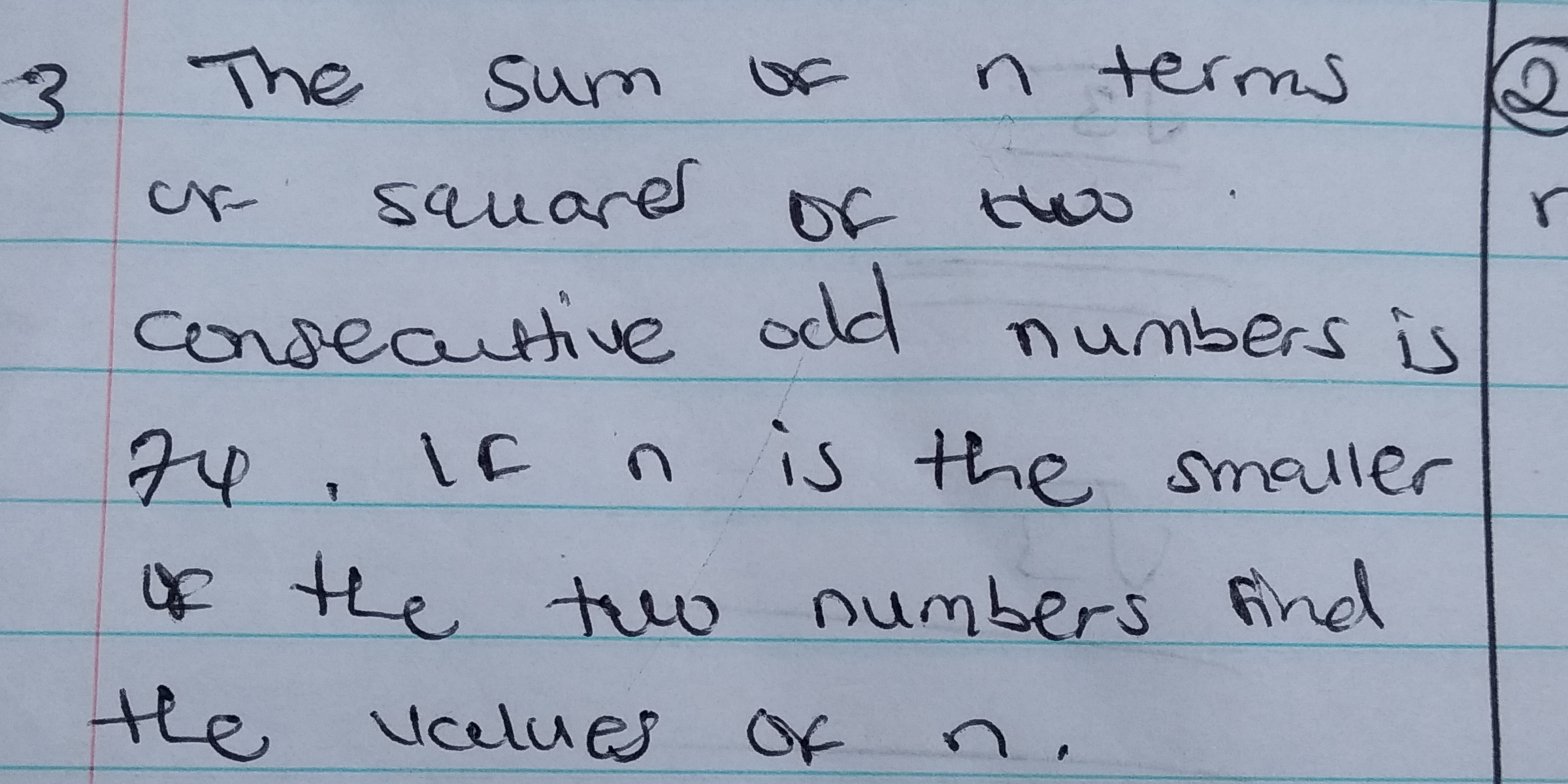The sum of squares of two consecutive odd numbers is 74. If n is the smaller of the two numbers, find the values of n.

Understand the Problem
The question says that the sum of the squares of two consecutive odd numbers is 74. If n is the smaller of the two numbers, the problem asks us to find the values of n. We will need to set up an equation to solve for n.
Answer
$n = -7, 5$
Answer for screen readers
$n = -7, 5$
Steps to Solve
- Define consecutive odd numbers
Since $n$ is the smaller odd number, the next consecutive odd number can be represented as $n + 2$.
- Set up the equation
The problem states that the sum of the squares of these two numbers is 74. So, we have the equation: $$n^2 + (n + 2)^2 = 74$$
- Expand the equation
Expand $(n + 2)^2$: $$n^2 + (n^2 + 4n + 4) = 74$$
- Simplify the equation
Combine like terms: $$2n^2 + 4n + 4 = 74$$
- Rearrange the equation
Subtract 74 from both sides to set the equation to zero: $$2n^2 + 4n - 70 = 0$$
- Divide by 2
Divide the entire equation by 2 to simplify: $$n^2 + 2n - 35 = 0$$
- Factor the quadratic equation
Factor the quadratic equation: $$(n + 7)(n - 5) = 0$$
- Solve for n
Set each factor equal to zero and solve for $n$: $$n + 7 = 0 \Rightarrow n = -7$$ $$n - 5 = 0 \Rightarrow n = 5$$
$n = -7, 5$
More Information
The problem asked for the values of $n$, the smaller of two consecutive odd integers whose squares sum to 74. We found two possible values: -7 and 5. The two consecutive odd integers are either -7 and -5, or 5 and 7.
Tips
A common mistake is to incorrectly expand $(n + 2)^2$. Remember that $(n + 2)^2 = (n + 2)(n + 2) = n^2 + 4n + 4$. Also, forgetting to set the quadratic equation to zero before factoring is a common mistake. Ensure the equation is in the form $ax^2 + bx + c = 0$ before factoring or using the quadratic formula.
AI-generated content may contain errors. Please verify critical information